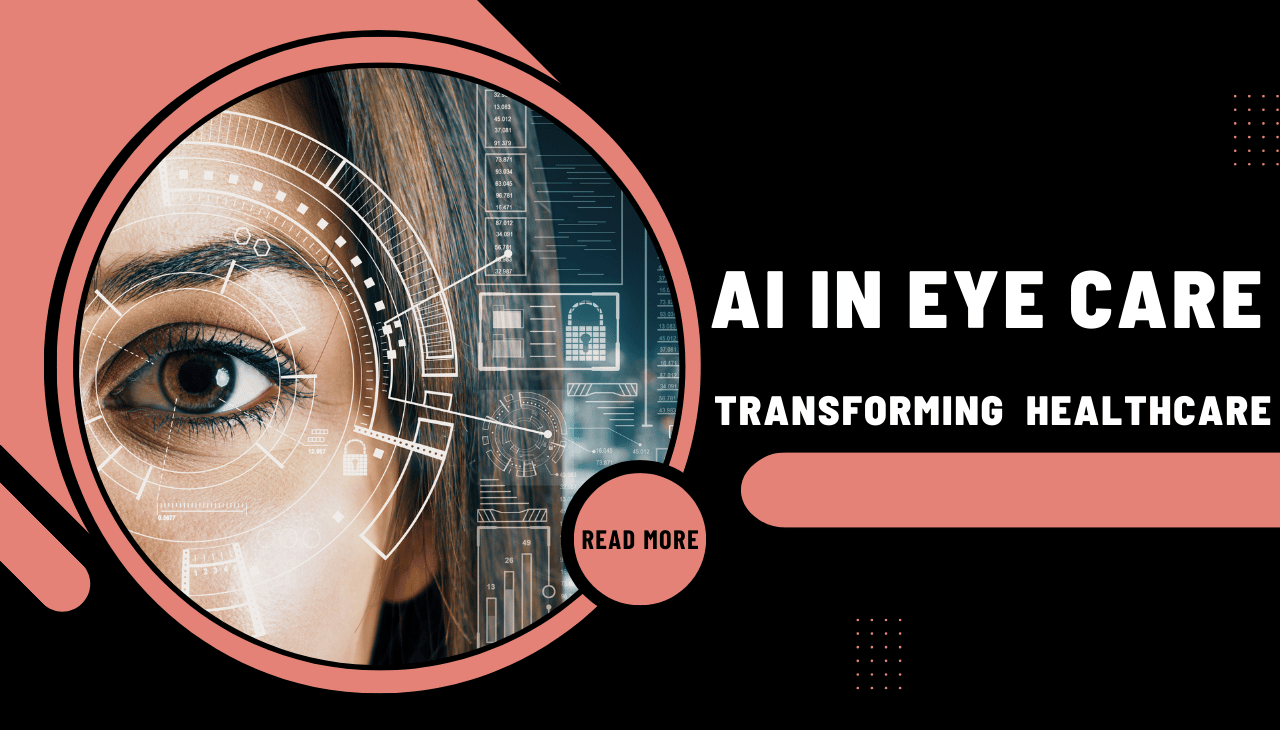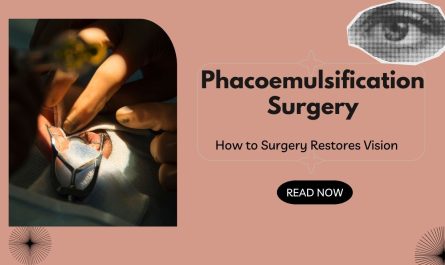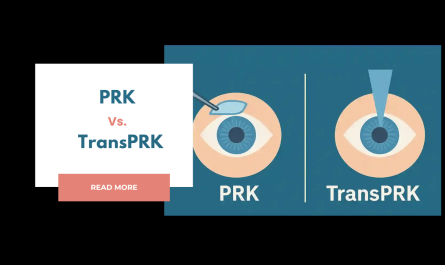Artificial Intelligence (AI) is transforming every aspect of healthcare, and eye care is no exception. As technology evolves, AI has emerged as a powerful ally in the early detection of serious eye diseases that can otherwise lead to vision loss if left unnoticed. With precision, speed, and the ability to learn from vast amounts of data, AI is now making it possible to diagnose retinal and optic nerve disorders earlier than ever before.
In this blog, we’ll explore how AI is changing the landscape of ophthalmology, the types of eye diseases it helps detect, the importance of early diagnosis, and how modern eye care clinics like Laxmi Eye Institute are embracing this technology for better patient outcomes.
Understanding AI in Eye Care
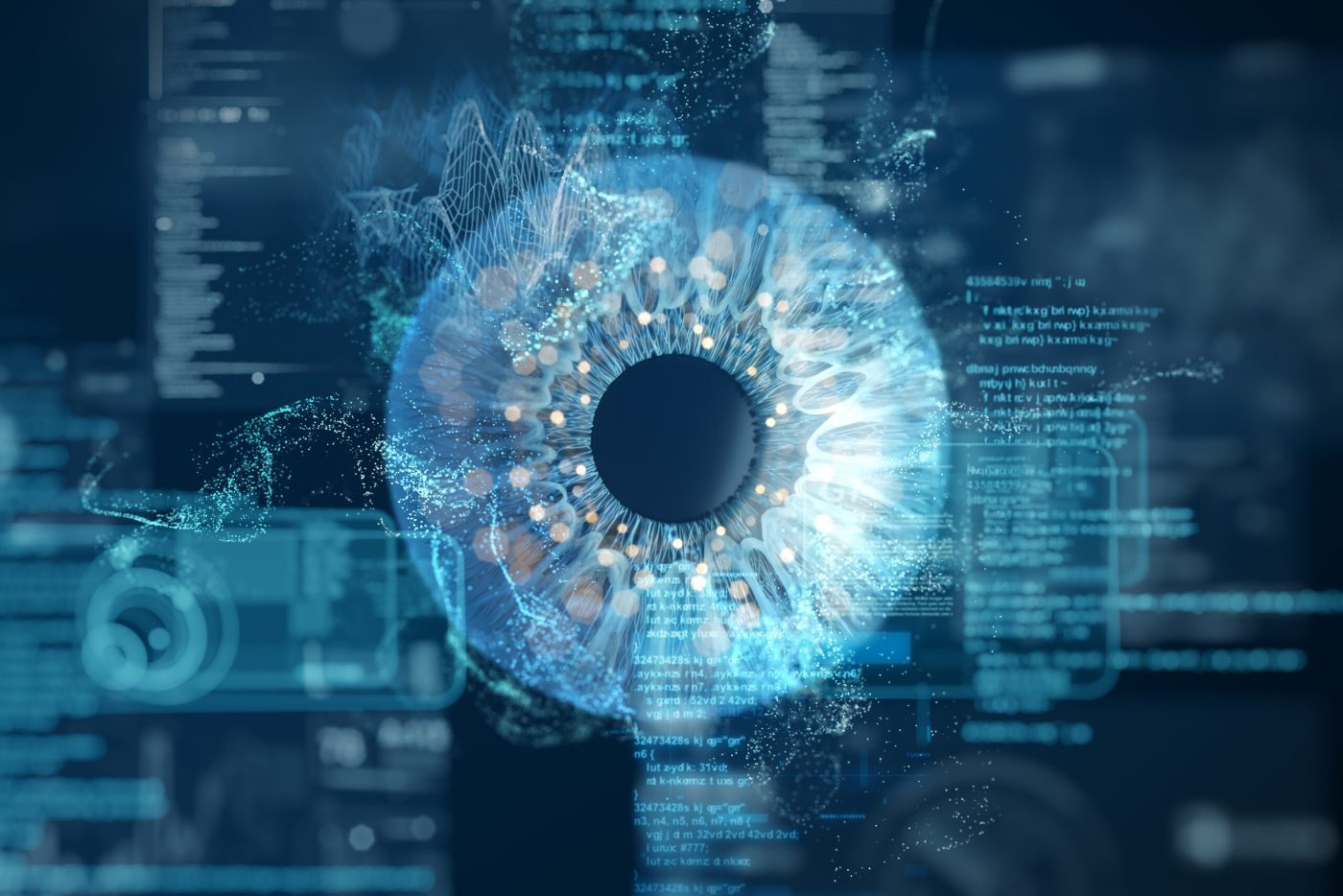
AI in eye care refers to the use of machine learning algorithms and deep learning models to analyze medical images of the eye—particularly the retina, optic nerve, and cornea. These systems are trained to detect abnormalities that may indicate diseases such as diabetic retinopathy, glaucoma, and age-related macular degeneration (AMD).
Key Terms:
- Retinal Imaging: High-resolution photos of the back of the eye used to assess the health of the retina.
- Deep Learning: A subset of AI where algorithms learn to interpret patterns in medical images.
- Autonomous Diagnostics: AI tools capable of providing diagnostic results without human input.
AI is not just a tool but a revolution in the way ophthalmologists detect and manage eye conditions. It enhances accuracy, reduces human error, and speeds up the diagnostic process—especially in underserved or rural areas.
Common Eye Conditions AI Helps Detect
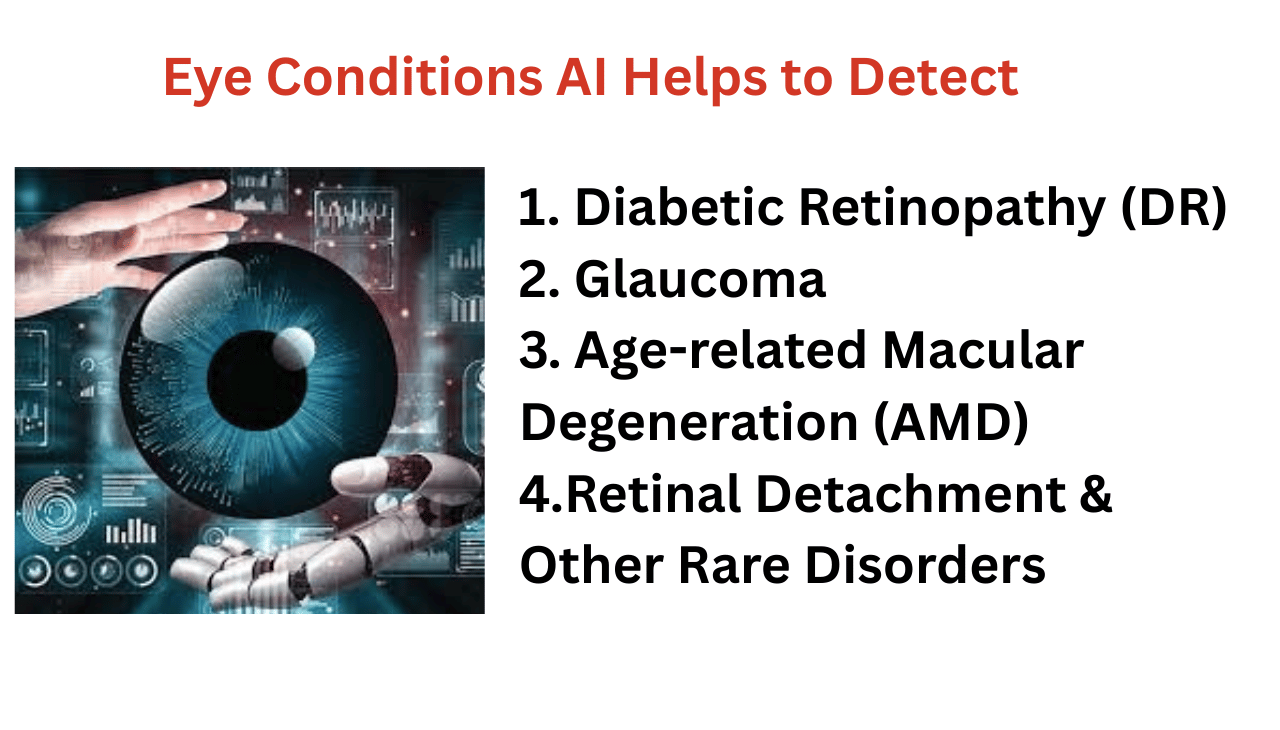
1. Diabetic Retinopathy (DR):
One of the leading causes of blindness in diabetic patients. Early detection through AI-based retinal screening can identify microaneurysms and retinal hemorrhages before symptoms even appear.
2. Glaucoma:
Known as the “silent thief of sight,” glaucoma often goes undetected until irreversible vision loss occurs. AI can analyze optic nerve images and intraocular pressure trends to detect early-stage glaucoma.
3. Age-related Macular Degeneration (AMD):
This condition affects central vision. AI tools can spot subtle changes in the macula that are often missed in manual screening.
4. Retinal Detachment & Other Rare Disorders:
AI’s ability to analyze patterns quickly allows for early warnings in case of serious emergencies like retinal detachment or inherited retinal diseases.
How AI Enhances Eye Disease Diagnosis & Treatment
1. Speed and Scalability:
AI algorithms can process thousands of images within minutes, making mass eye screenings possible—ideal for large populations and rural outreach programs.
2. Increased Accuracy:
AI systems are trained on millions of eye scans, giving them the ability to detect minute changes that even experienced doctors might overlook.
3. Early Intervention:
By catching diseases early, patients can begin treatment sooner, avoiding complications and permanent vision loss.
4. Better Access to Care:
In remote areas with a shortage of specialists, AI-enabled diagnostic tools can serve as virtual assistants, helping general practitioners provide accurate referrals.
Expert Insights: A Future Fueled by AI and Compassion
Ophthalmologists agree that while AI will never replace human expertise, it is a valuable supplement. It allows eye care professionals to focus more on patient interaction, treatment planning, and complex decision-making while leaving the repetitive and time-consuming task of screening to machines.
The best outcomes are achieved when AI is integrated thoughtfully—with a patient-first approach. Clinics like Laxmi Eye Institute are at the forefront of this integration, ensuring the technology is used responsibly and ethically.
Why Trust Laxmi Eye Institute for Eye Care
Laxmi Eye Hospital is one of the most trusted names in eye care in Mumbai. With over 30 years of excellence, Laxmi has continually evolved by embracing the latest in diagnostics, surgery, and treatment—including AI-based tools.
The institute is known for its experienced doctors, patient-first approach, and transparent treatment procedures. With a strong foundation in both clinical expertise and technological innovation, Laxmi Eye Institute provides:
- Specs Removal / LASIK (including Contoura Vision, Bladeless LASIK, ICL, IPCL)
- Cataract Surgery
- Glaucoma Management
- Diabetic Eye Disease Care
- Retina Treatment
- Pediatric Ophthalmology
- Corneal Diseases and Eye Donation Programs
Consultation & Locations:
- Dombivli: 1st Floor, SS Business Park, Gharda Circle, Dombivli East, Mumbai 421201
- Kharghar: Office 108-110, 1st Floor, Anant CHS, Plot 31, Sector 04, Navi Mumbai 410210
- Panvel: Mulla Hamid Rd, Old Panvel, Navi Mumbai 410206
- Kamothe: Shop No 26/27, Near ICICI Bank, Pratik Gardens, Sector 34, Kamothe, Navi Mumbai 410209
Book Your Appointment Today:
Visit laxmieye.org or call the nearest branch for a consultation.
FAQs
Q1. Is AI reliable for detecting eye diseases?
Yes, AI tools used in top clinics are validated by research and perform at par with expert ophthalmologists in detecting conditions like diabetic retinopathy and glaucoma.
Q2. Will AI replace human eye doctors?
No. AI supports doctors by speeding up diagnostics and enhancing accuracy but doesn’t replace the need for clinical judgment and treatment planning.
Q3. How often should I get a retinal screening?
If you have diabetes or are over 40, it’s advisable to have annual eye check-ups, even if there are no symptoms.
Q4. Does AI cost extra in diagnosis?
Not necessarily. Clinics like Laxmi Eye Institute integrate AI as part of their advanced screening packages at affordable rates.
Q5. Can children benefit from AI diagnostics?
Yes, pediatric ophthalmology also benefits from AI, especially in detecting congenital disorders and tracking visual development.
Q6. Is early detection really that important?
Absolutely. Early detection allows for timely treatment, often preventing irreversible vision loss.
Q7. Is AI-based screening available at all Laxmi Eye branches?
Yes, all major branches including Panvel, Kharghar, Kamothe, and Dombivli are equipped with state-of-the-art diagnostic tools.
Conclusion
The AI revolution in eye care is not just a trend—it’s a leap toward saving sight and improving lives. From early detection to efficient screening, this technology is empowering doctors and patients alike. If you’re due for an eye check-up or want to take preventive steps, now is the perfect time to visit a trusted clinic like Laxmi Eye Institute.
Your vision is precious—don’t wait for symptoms to appear. Book your consultation today and see the future of eye care for yourself.

